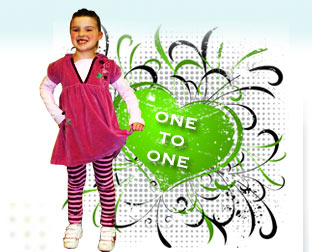Friday, April 19, 2024 |
 |
Autism Red Flags
6 Months of Age
- Infrequent babbling.
- Infrequent vocalization in response to caregiver vocalization (remember that typically developing infants require a little time to coordinate their responses, so caregivers should provide some silent moments in between the vocalizations that they direct to their infant. This gives the infant some time to coordinate a response).
- Infrequent looking at the face of the interactive partner.
- Infrequent matching of the facial expression of the caregiver. Infants should smile when their caregiver smiles at them (not every single times, but this should be consistent enough that it is noticeable). Parents should expect their infant to be synchronized with them, in emotional expression, vocalization patterns, and so on.
- Odd or unusual movement patterns (i.e., method of grasping an object, rolling over, and in older infants, crawling; odd transitions in movement from one position to another)
9 – 12 Months of Age
- Reduced or absent nonverbal intentional communication (waving bye bye, pointing).
- Reduced or absent social communication (showing, pointing things out, sharing, giving you a bite of their snack, “calling” you from the crib).
- Reduced complexity of babbling or reduced variety in the types of sound produced by the infant during babbling.
- Reduced use of vocalization in interactions or during intentional communicative attempts (trying to get you to give him a Cheerio, or trying to get you to pick her up).
- Reduced comprehension of your nonverbal gestures (your hand out as you ask for him to ‘give it to me’).
- Reduced response to his/her name being called.
- Being overly ‘fixated’ on objects or movement patterns.
- Reduced imitation of simple movement patterns that the child can already perform on his own.
- Reduced attempts to make you laugh. Typically developing infant enjoy attention and do things to seek it out. If they see that they have made you laugh, they are likely to perform the behavior again to get you to laugh again or keep your attention.
14 – 16 Months of Age
- Reduced looking to the caregiver when the caregiver is talking but not necessarily to the child.
- Lack of the onset of first words.
- The primary way that you can consistently get and keep the child’s attention is when you perform a favorite routine (peek-a-boo, sing a certain song, etc.).
- Fixated on videotapes.
- Echoing what others say without social and communicative intention.
- Lack of teasing. Toddlers of this age have ways of signaling when they are initiating a social game. They will give a coy look, offer you a toy, and then retract it as they smile, and so forth. The absence of this teasing behavior is a red flag.
- Infrequent coordination of looking at him, smiling, and producing some form of communication (a word or vocalization or gesture).
- Imitation that is reduced in frequency, atypical in form, or unpaired with social connection (i.e., eye contact and/or a smile).
- Reduced frequency or length of turn-taking exchanges (with or without objects).
- Repetitive behaviors or sensory seeking (i.e., pressing head against caregiver, peering at the edge of a table).
- Reduced number of play sequences (put spoon in cup and stir; put spoon in bowl then to teddy bear’s mouth) or range of behaviors that re exhibited in play. A child who engages only with cause-effect toys or stacking blocks, to the exclusion of functional play with objects and emerging pretend play (i.e., putting a phone to her ear) should be watched to see whether there are other ‘red flags’ present.
Early diagnosis and intervention provides a child with optimum opportunities for enhances growth and development. If an infant or toddler’s actions mimic several of these red flags, someone has concerns about the infant’s development, or there is a family history of an autism spectrum disorder, the infant should be seen by a developmental expert. Please call or email us if you have any questions.




